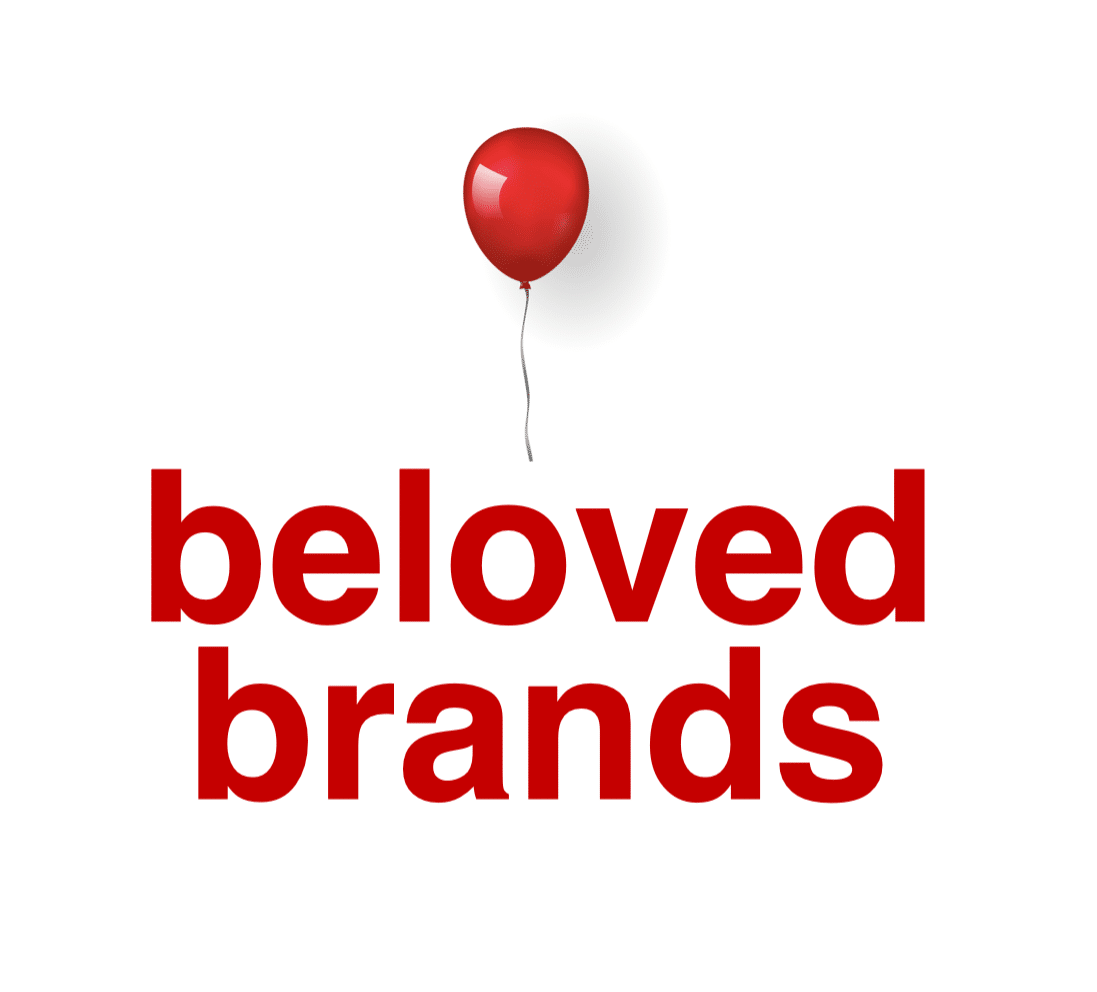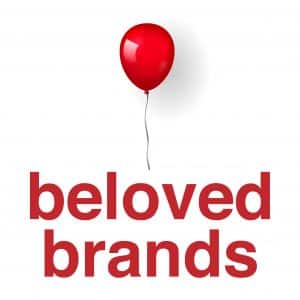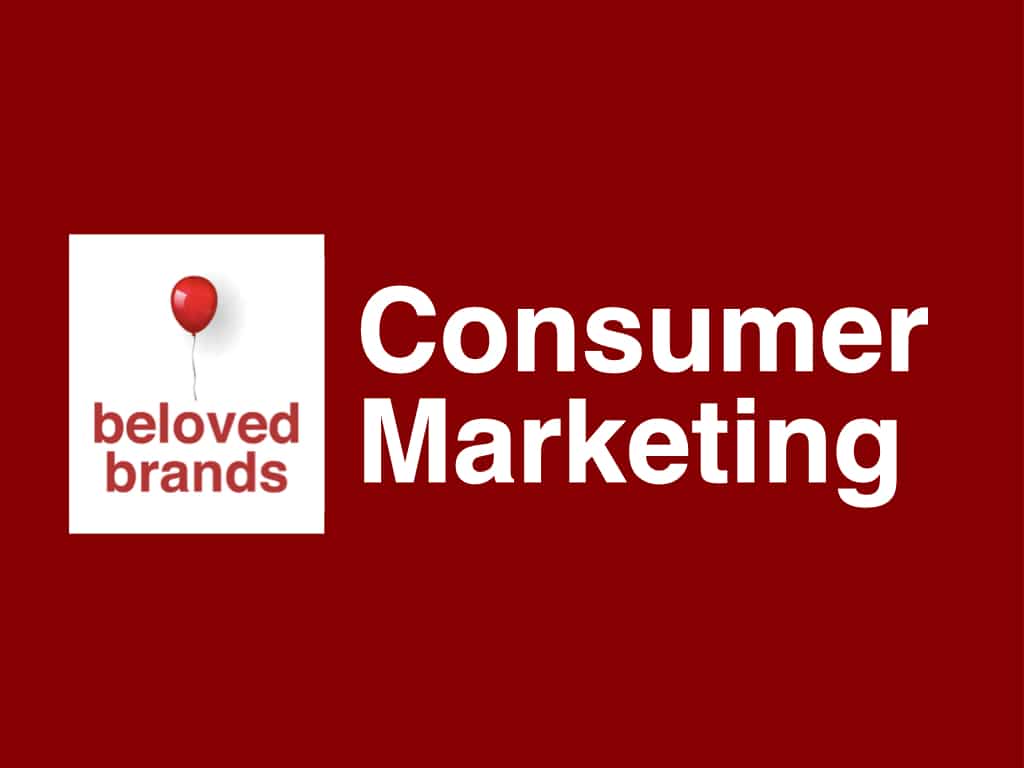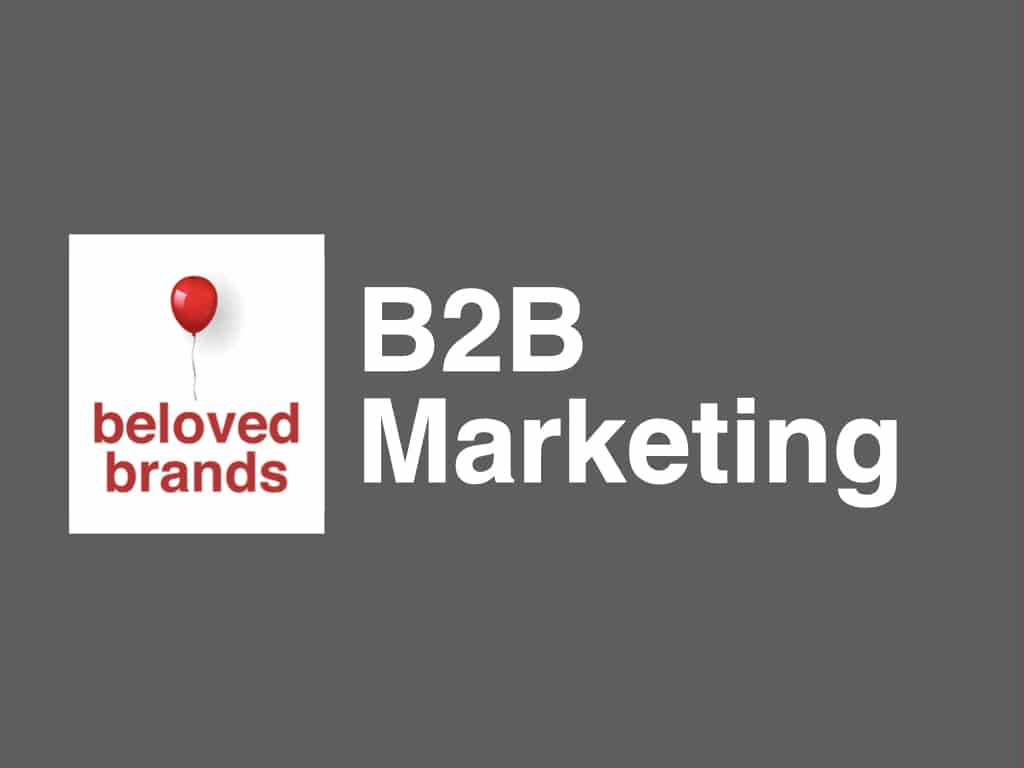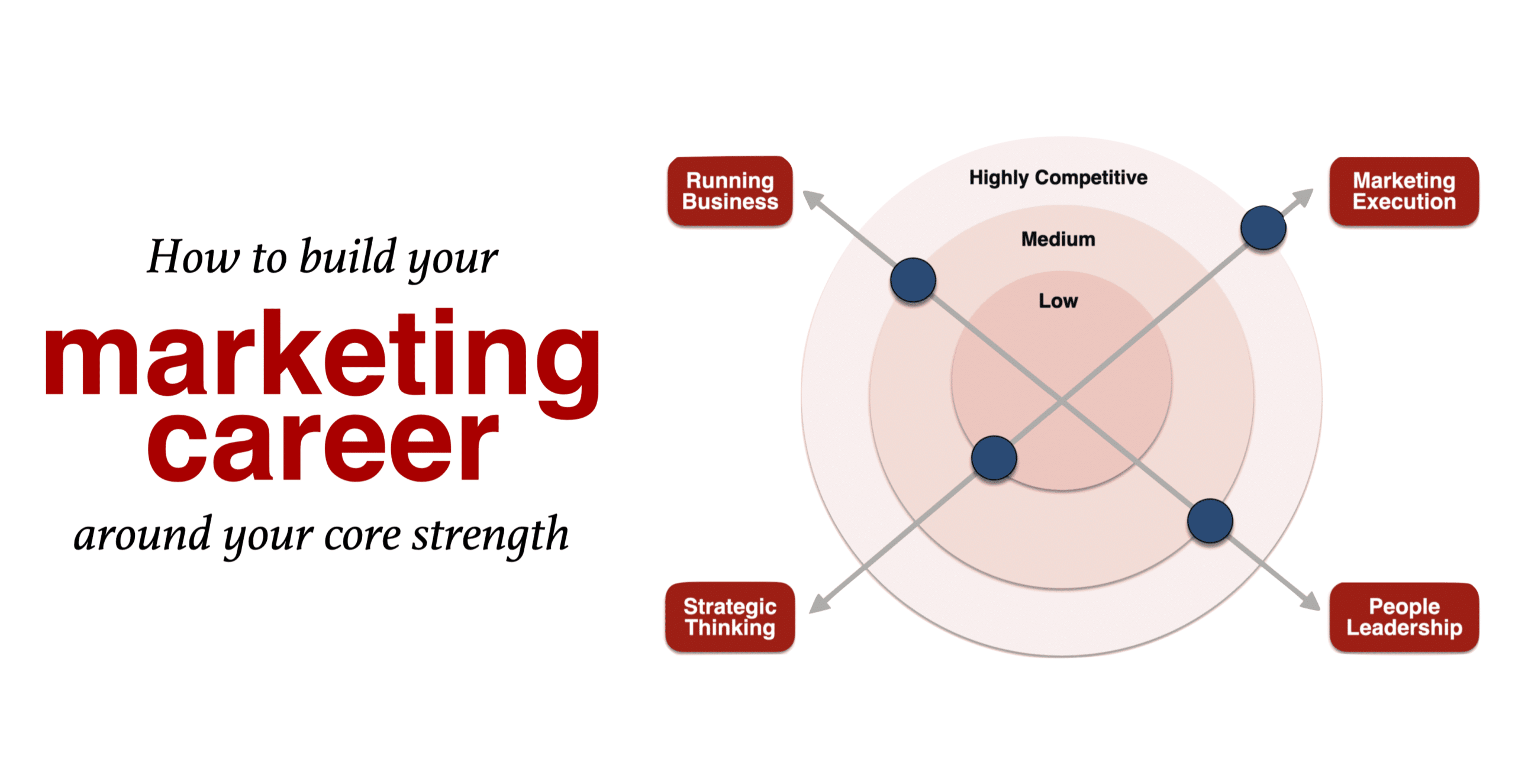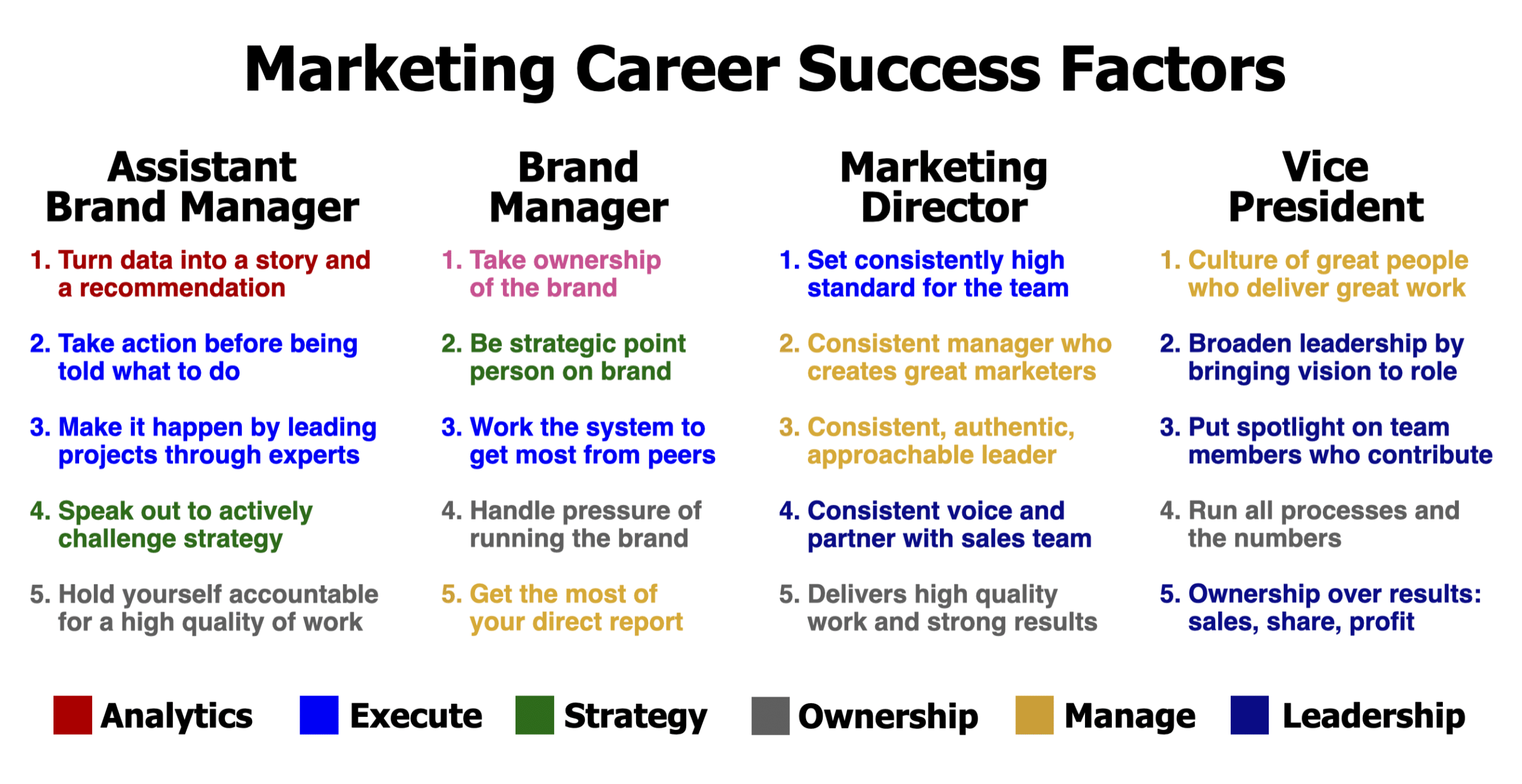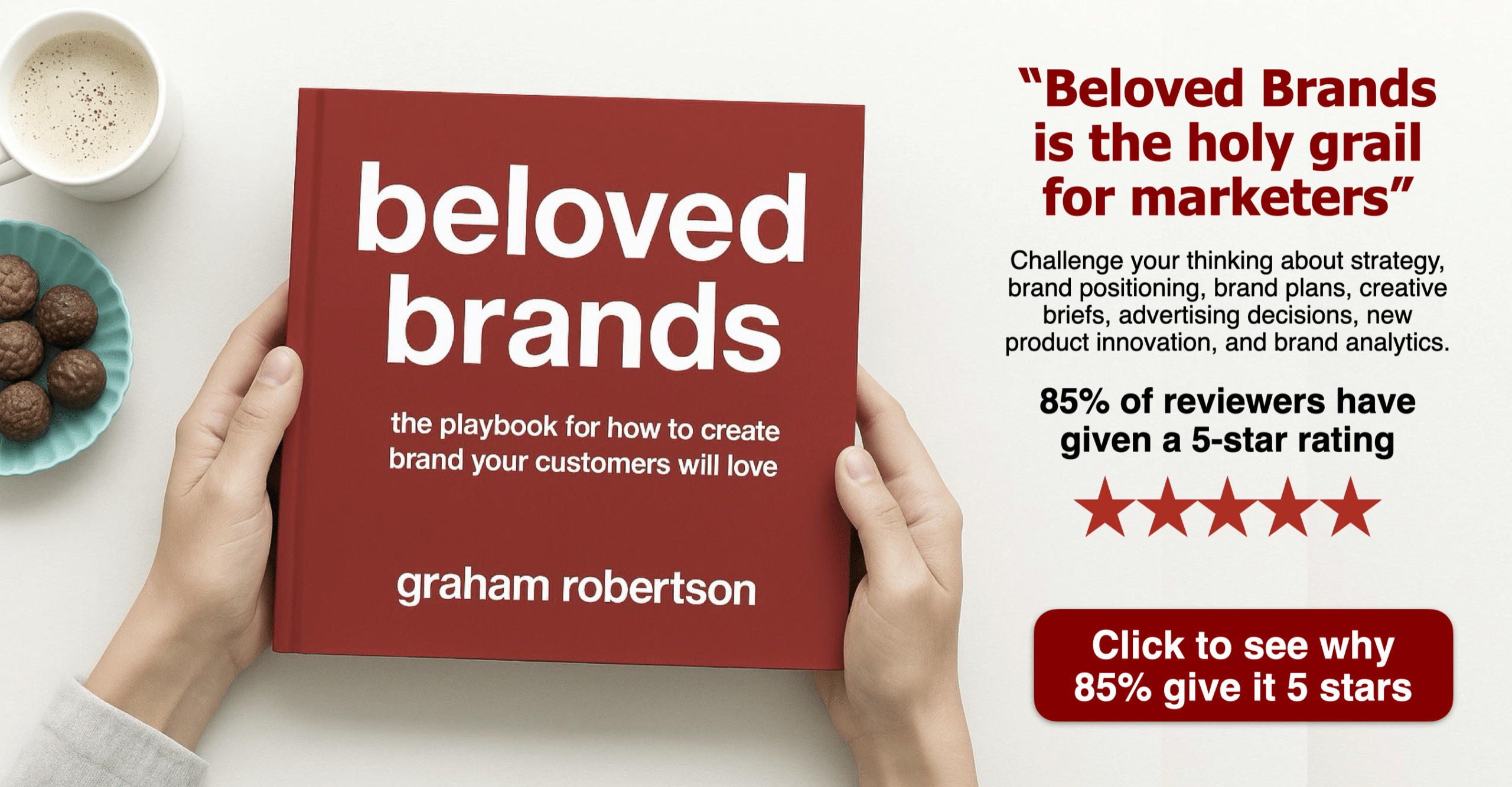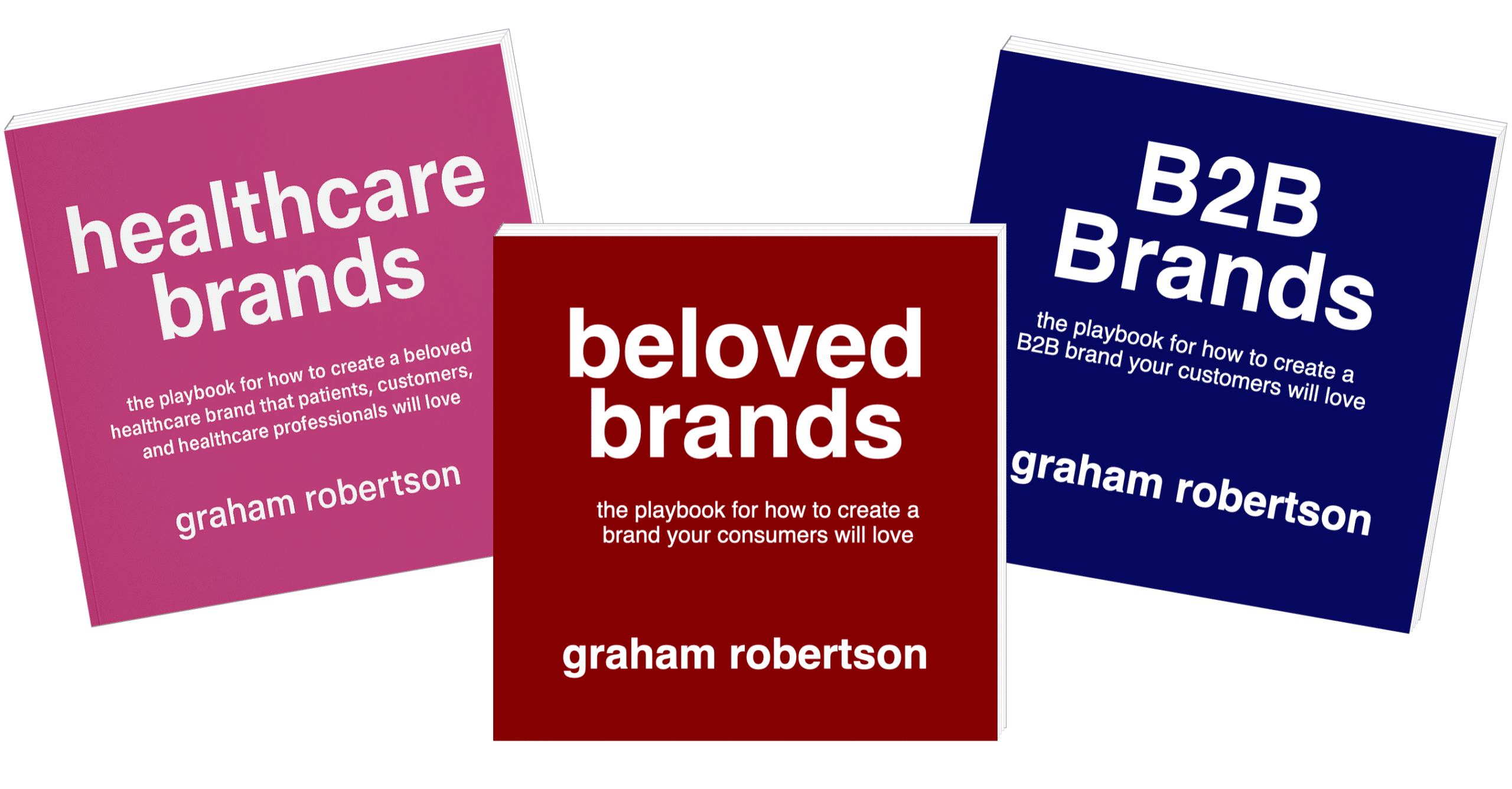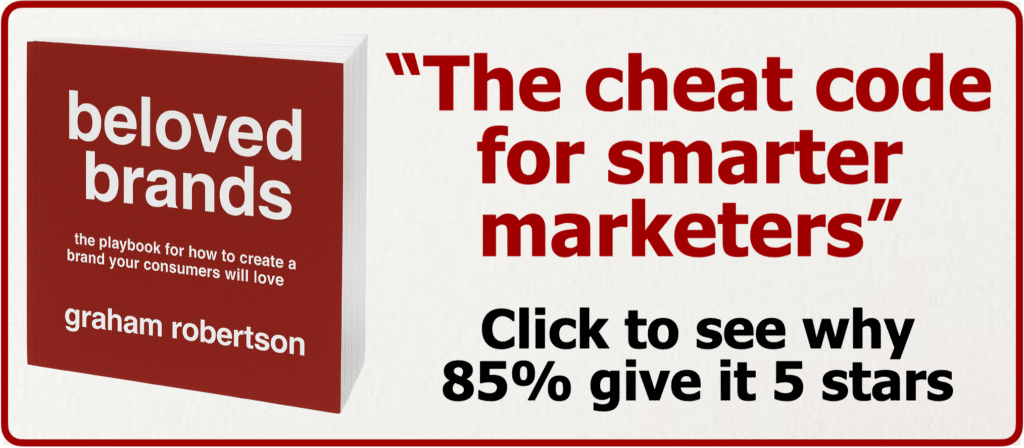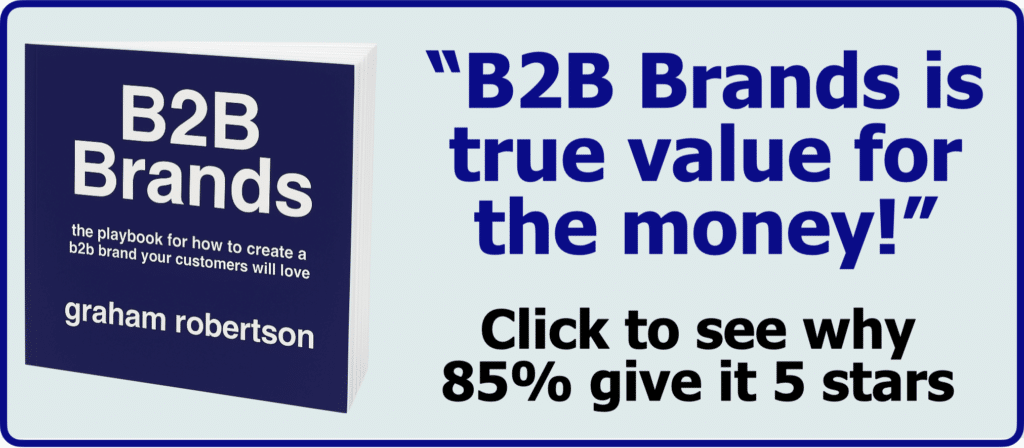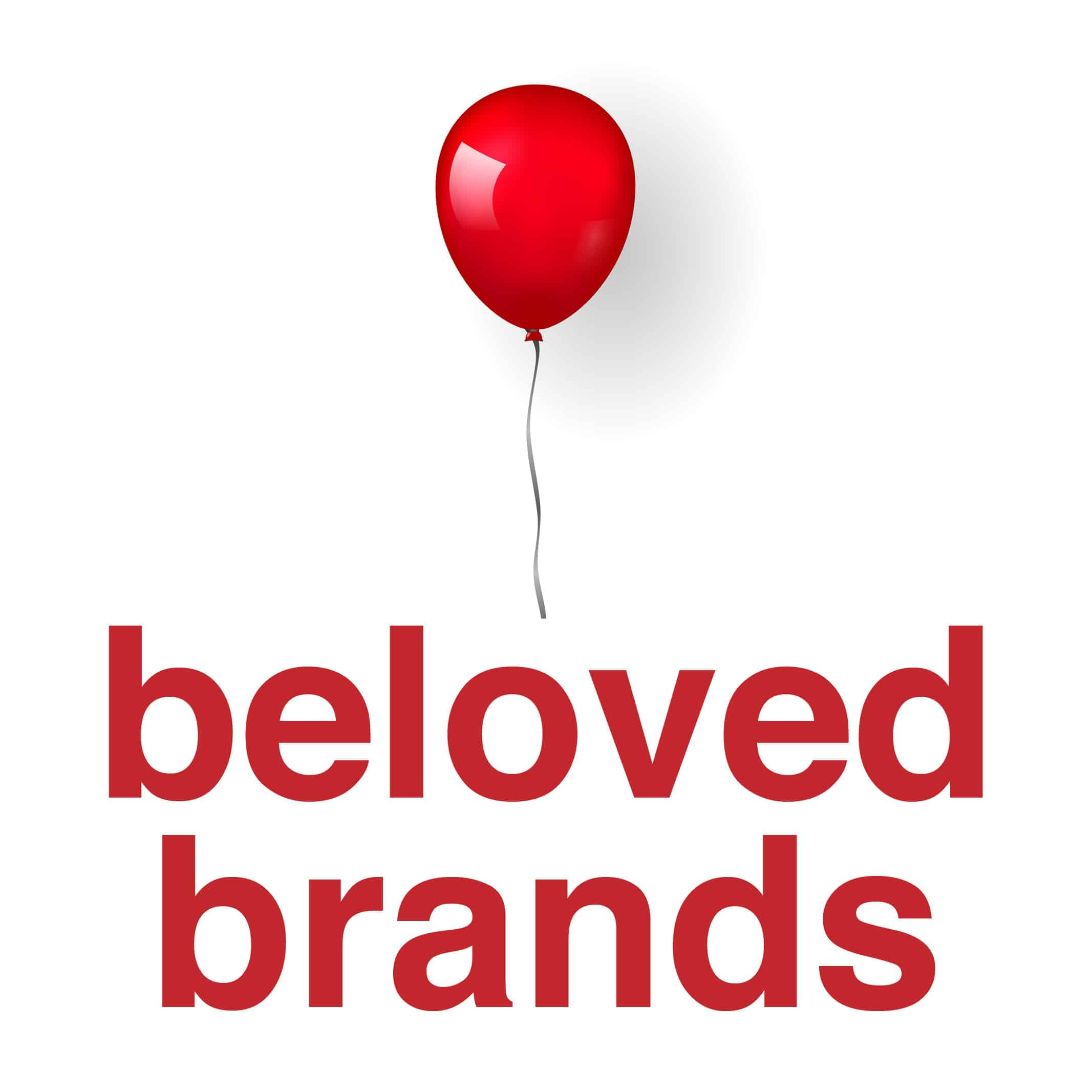Managing your marketing career can be stressful. Many times, people get so focused on the job they are in, they never take the time to ask the tough questions. Here are five marketing career questions that you should be asking, at least once a year:
- How high up can you go within your current company?
- Should you stay in the same industry or look at new verticals?
- Should you stay in pure brand management or venture into a subject-matter expert type role?
- How long do you want to keep working?
- Do you stay an employee or take this moment to leap out on your own?
Answer these career questions honestly before going out into the job market. Use these answers to frame your career strategy. Think of these questions as a starting point for your personal branding or how you might position yourself on your LinkedIn profile.
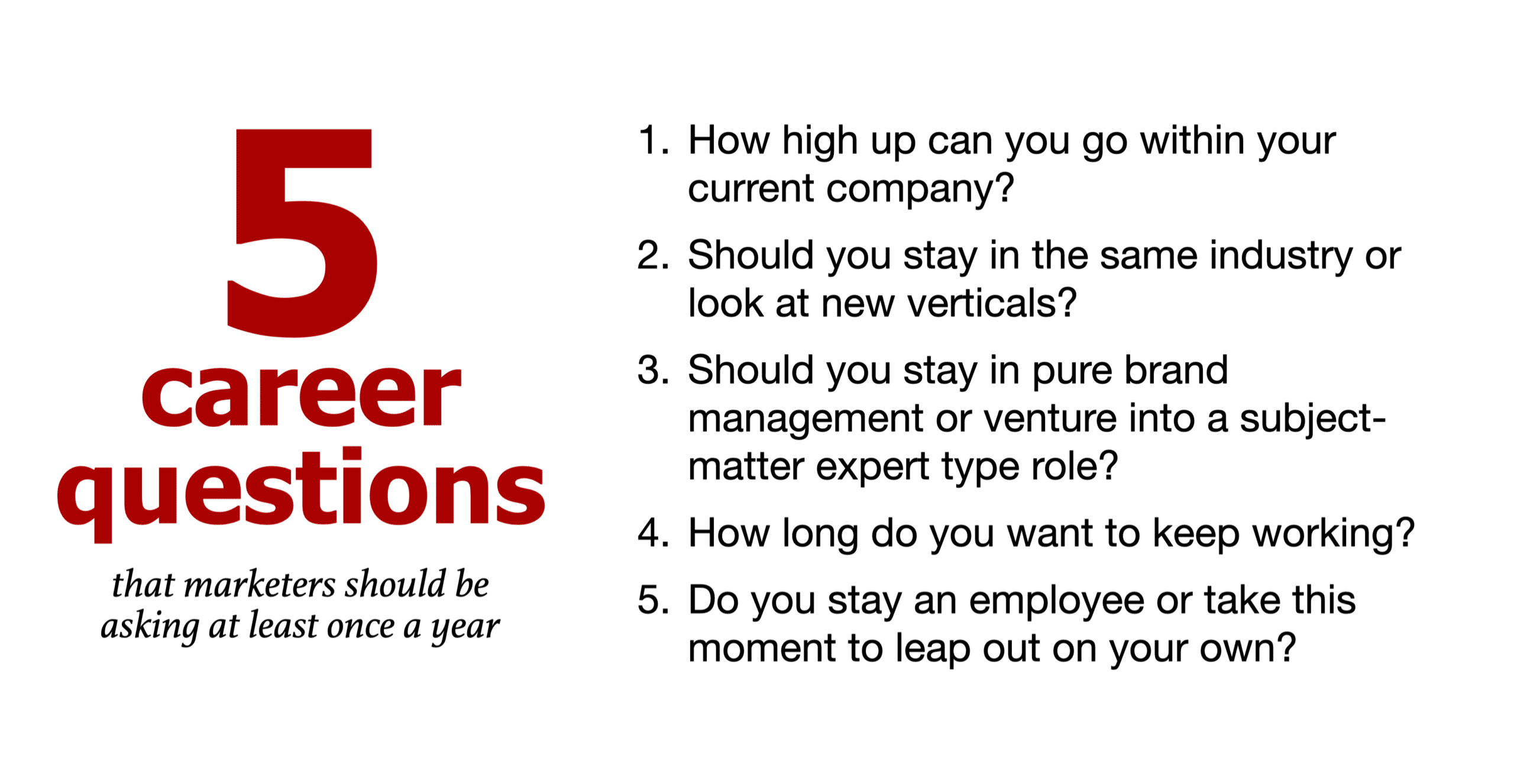
Five career questions - Table of Contents
1. How high up do you think you can go within your current company?
Evaluating Career Advancement within Your Current Organization:
Reflect sincerely on your potential for upward mobility in your current company. Consider whether you have reached your peak. While there are always exceptions, it’s pragmatic not to base your career plans on being an outlier. Once you’ve peaked, think about how long you can sustain success in your current role before external pressures might compel a change. It’s often more advantageous to proactively make a career move rather than waiting until circumstances dictate that you must.
2. Should you stay in the same industry or look at new verticals?
Deciding Between Staying in Your Current Industry or Exploring New Verticals,
This pivotal career decision involves reevaluating your comfort zone within your existing industry.
For example, if your background is in consumer packaged goods (CPG), you’re likely accustomed to significant control and influence in brand management. In CPG, marketers often play a central role in driving brand direction. However, transitioning out of this sector could mean adapting to a more constrained role in marketing.
Outside CPG, marketing positions sometimes evolve into support functions, focusing primarily on marketing communications. This might involve executing strategies for products or services with limited input from marketers, shifting the role from a strategic, business-leading position to a more execution-focused capacity. Consider the extent of influence and control you desire in your career and how a change in industry might affect this.
What type of marketer are you?
We believe that marketers learn best when they see our marketing concepts applied to brands that look like their own. We have come up with specific examples – consumer, B2B and healthcare – to showcase our marketing tools. Click on the icon below to choose your interest area.
3. Should you stay in pure brand management or become a subject-matter expert?
Choosing Between Pure Brand Management and Specializing as a Subject-Matter Expert.
This crucial career choice can significantly impact your professional trajectory, and it’s important to remember that it may be challenging to reverse this decision.
In career development, individuals often find themselves labeled, particularly when transitioning into a role as a subject matter expert instead of a more generalized managerial position.
If you step away from brand management and later find that the new path isn’t aligning with your goals, it could be difficult to persuade potential employers of your versatility and capability in brand leadership roles.
Your core strengths define your personal brand as a marketing leader. These strengths can be categorized into four key areas: business management, marketing execution, strategic thinking, and people management.
Using the diagram above, start with four chips. You must place one chip where you believe you have the highest competitive advantage to win. Then put two chips at the medium level that backs up and supports the core strength. Finally, the game forces one chip to be at the low end, which is almost a throwaway weakness that will not be part of your long term strategy.
Managing your marketing career
How to manage your marketing career from ABM to CMO
I go through what it takes to be successful at each level of your marketing career. And, we provide a link to a game plan for how to move up through each level of marketing, starting at the entry-level Assistant Brand Manager up to the Brand Manager who delivers all activities on behalf of the brand. The Marketing Director level looks after a core business unit team, and the Vice President or CMO oversees the entire marketing team.
4. How long do you want to keep working? 60? 70? 80?
Determining Your Career Longevity
At what age do you envision retiring? 60, 70, or perhaps even 80? It’s essential to contemplate this career question as it greatly influences your long-term planning.
This decision often hinges on factors such as your financial situation and family considerations. For instance, at 25, the dream of retiring at 55 on a picturesque island might seem ideal.
However, perspectives can shift with time. When you reach 45, you might ponder what the next 15 years of your career should look like, a question that can be unexpectedly daunting without clear answers.
Personally, I experienced a significant shift in my career path; transitioning to consultancy ignited a new passion, leading me to now want to work till I’m 70. Such experiences highlight the evolving nature of career aspirations and the importance of continuously reassessing your retirement goals.
5. Do you stay an employee or take this moment to leap out on your own?
Deciding Between Employment and Entrepreneurship.
The choice between remaining an employee or venturing into entrepreneurship is a significant career crossroads. As an entrepreneur, you gain the unparalleled advantage of being your own boss, which I personally find incredibly fulfilling. However, when advising others on this path, I often caution that entrepreneurship isn’t suited to everyone.
As you deliberate over this decision, it’s crucial to approach it with seriousness and introspection, rather than looking for external validation or encouragement. The leap into entrepreneurship is akin to jumping off a cliff – it’s a decision that you have to make independently. I vividly recall the multiple affirmations I gave myself during a phone call with my wife, saying “I’m going to do it” – it was more about mentally preparing myself than informing her. Embracing entrepreneurship involves risk, but it also means betting on yourself, and that realization can be empowering.
The entrepreneurial lifestyle has its perks, such as flexibility and autonomy, but it also means being constantly on the clock.
It can also be a solitary journey, something that even as an introvert, I found surprisingly challenging. It took me around 18 months to adapt to working alone, missing the casual office interactions and discussions about current events or sports. This aspect of entrepreneurship is often overlooked but is a crucial factor to consider when choosing this career.
Before you ever go on your own, here are two new questions for you:
1. How do you like looking for a job?
- I hear too many people say they think it’s time to become consultants because they are tired of looking for jobs. As a consultant, we are always looking for our next job.
2. How do you like sales?
- A wise sales leader once told me, “If you hate sales, start in sales and move up to management. Every other profession will end up in sales.” As consultants, we are always selling. Consulting was my first real sales job and my first service role. It took me time to adjust to.
Brand Management Mini MBA
Invest in your future. If you are an ambitious marketer, looking to solidify your marketing skills, our Brand Management Mini MBA will teach you about strategic thinking, brand positioning, brand plans, advertising decisions, and marketing analytics.
Have a look at our brochure on our Mini MBA program
To illustrate, use > to move through the brochure or x to see the full screen.
